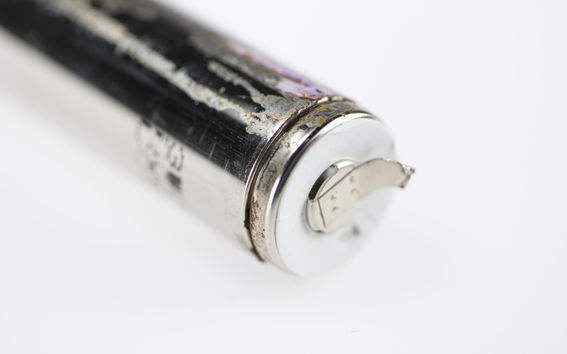Finland continues to lead battery metals and recycling research

The aim of creating a competitive and sustainable European battery industry is one step closer to reality as BATCircle 2.0 received funding from Business Finland. The consortium is built on the principles of collaboration and joint research interests between companies and research organisations. Research within the ecosystem has a strong focus on mitigating the effects of climate change, developing materials recycling, and contributing to sustainability in all steps of the battery metals and materials value chain.
Business Finland has granted the BATCircle 2.0 (Finland-based Circular Ecosystem of Battery Metals) consortium with 10.8 million euros as part of a total funding budget of 19.3 million euros for three years. This funding enables the consortium to continue to build on the first phase of BATCircle which was successfully completed in April 2021. In addition, BATCircle 2.0 is a key project in Business Finland’s Smart Mobility and Batteries from Finland programs.
The use and demand for lithium-ion batteries is increasing drastically, as the number of electronic devices and electric vehicles and energy storage continues to rise. These batteries require not only lithium, but also other key metals like cobalt, nickel, manganese, copper, aluminium as well as graphite and other anode materials. Consequently, it is important to create a European-wide battery industry which utilizes the enormous business potential in the lithium-ion batteries throughout the whole value chain. Additionally, European self-sufficiency in the battery sector is one of the major objectives as Europe is currently highly dependent on the supply of both raw materials and battery cells from overseas.
The BATCircle 2.0 project targets adding value to the Finnish battery metals and materials sector. ‘We believe that our domestic battery metals ecosystem will enable the growth of a European ecosystem that follows the principles of a circular economy and further strengthens Finland´s position in the field,’ says Mari Lundström, Principal Investigator of BATCircle and Associate Professor at Aalto University, School of Chemical Engineering.
Established in 2019, the BATCircle consortium aims at improving the manufacturing processes of mining, metals refining and battery chemicals as well as materials industry, and at increasing the recycling efficiency of lithium-ion batteries. 'This ecosystem addresses the targets of the Finnish national battery strategy launched earlier this year, and the targets set in the European battery ecosystem. Our aim is to accelerate Finland’s sustainable and low-carbon economic growth and support the achievement of climate objectives in transport by developing skills in the field and by expanding co-operation,' says Tuomas van der Meer, Technology manager, Metso Outotec.
Led by Aalto University, the BATCircle 2.0 consortium consists of six research organizations and 15 companies. The goal of the consortium is to strengthen the cooperation between the companies and research organisations. Furthermore, by creating increased understanding and potential in circularity, it is expected that new business opportunities will be created in the field. During the first years of its existence, the BATCircle consortium has produced many promising results aimed at improving the efficiency of the refining processes and recycling of lithium-ion battery raw materials. The project has also carried out extensive research to support the exploration for potential battery mineral deposits in Finland and studied opportunities for their more sustainable exploitation. In addition, the production processes of battery materials have been improved and the properties of battery active materials have been developed using recycled raw materials.
‘Close cooperation between companies and research organizations is essential in order to reach the ambitious goals of the BATCircle consortium. Finland has all the know-how and there is a shared ambition to make our country the most attractive global partner in this fast-growing industry. Business Finland’s role is to enable and accelerate innovations and top-level research and to support internationalisation of solutions and business models,’ explains Ilkka Homanen, Head of Smart Mobility and Batteries from Finland, Business Finland.
BATCircle2.0 consortium consists of:
- Aalto University, University of Eastern Finland, LUT University, University of Oulu
- Geological Survey of Finland (GTK), VTT Technical Research Centre of Finland
- Boliden Harjavalta Oy, Finnish Minerals Group Oy, Fortum Waste Solutions Oy,
Metso Outotec Oyj, Norilsk Nickel Harjavalta Oy, Terrafame Oy, Umicore Finland Oy, AkkuSer Oy, BroadBit Batteries Oy, Oy Fennoscandian Resources Ab, FinnCobalt Oy, Keliber Technology Oy, Latitude 66 Cobalt Oy, Mawson Oy, X-Ray Minerals Services Finland Oy
Further information:
Mari Lundström, Associate Professor, Aalto University, School of Chemical Engineering
e-mail: firstname.lastname@aalto.fi
Tuomas van der Meer, Technology Manager, Metso Outotec
Tuomas.van.der.meer@mogroup.com
Ilkka Homanen, Head of Smart Mobility and Batteries from Finland, Business Finland
Ilkka.homanen@businessfinland.fi
More information about the topic:
Aalto news: More recycling and business worth billions to the battery sector
Aalto news: Recycling of batteries and responsible raw materials...
Mari LundströmOur domestic battery metals ecosystem will enable the growth of a European ecosystem that follows the principles of a circular economy.
Read more news

Significant donation to boost pavement engineering research and education
Companies and associations in the field have donated €400,000 to the School of Engineering.
Design strengthens industrial competitiveness – human-centered factory work at the core
Factory work is undergoing a transformation: new technologies and artificial intelligence are changing the content and roles of work. Aalto University’s Department of Design is studying this change from a human-centered perspective in the HiFive project.
Learning to slow down: cold-water swimming benefits explored in new study
Swimming in cold water offers a temporal slowdown, promoting stress management and mental clarity that lingers long after the experience, says research from Finland.






